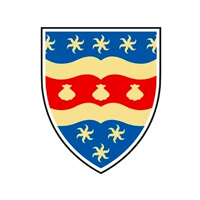fees waived
Computer Science (Software Engineering), BSc (Hons), with industry placement
University of Plymouth, United Kingdom
Subject ranking
UK / The Times 47th
UK / The Times 47th
UK / CUG 53rd
Costs
food & rentS$16.6K / year
Entry requirements
Scholarships
Unlimited quantity
Unlimited quantity
Unlimited quantity
Limited quantity
Information
Code
Code
Intakes
Website (External)
Programmes
Information
Duration
2028
Course summary
Computing and software development drives many of the world’s greatest technologies, helping us to live, learn, build and even save lives. This course combines computer science, software engineering and information systems to give you the skills employers want.You’ll learn about programming, databases, computer hardware, computer networking, and how a computer operating system works. You will then extend your knowledge in graphical representation, data modelling and artificial intelligence. You can also enhance your career prospects with a placement at industry leaders such as IBM, Microsoft, Goss Interactive and Vualto.
- Get a head-start in the industry Take part in local industry meet-ups and conferences such as Agile on the Beach, and networking events such as Tech Exeter and Digital Plymouth. Enjoy guest lectures from industry experts working at companies such as Red Hat and Goss Interactive.
- Gain professional accreditation Get a degree that’s accredited by, and entitles membership of, British Computer Society, BCS, the Chartered Institute for IT. Graduates may also gain registration as a Chartered IT Professional (CITP) and will partially meet the educational requirements for Chartered Engineer (CEng) registration.
- Be inspired by the creativity that our practical, hands-on course nurtures Our ‘learning through doing’ ethos means you build the skills to make you desirable to employers. You’ll learn from dedicated teaching staff engaged in internationally significant research, actively creating and developing applications, and have a wealth of industry contacts.
- Collaborate and build Mirroring the teamwork at the heart of the industry, you’ll work in a team to develop a piece of software with a real purpose.
- Immerse yourself in the very latest technology and software We use open source as well as providing access to Microsoft Imagine for software to work at home. We regularly update and refurbish our specialist labs, where you get to use Microsoft and Apple industry standard software.
Modules
In year one you start to develop the basic technical skills needed to become a computing professional, including: programming, databases, computer hardware, computer networking, and how a computer operating system works, with operational modules on topics. You also have the chance to put these things together in an applied project taking analysis and design through to a prototype implementation.In year two you build on the first year, you study software development topics in greater depth. You will extend your knowledge into graphical representation, data modelling and artificial intelligence. You learn how to capture requirements and complete a whole software life cycle, starting with a concept and ending with a product.In your year three, an optional, but strongly recommended placement gives you professional experience and significantly enhances your CV. Placement providers include IBM, Microsoft, Goss Interactive and Vualto.Throughout the final year, you will complete a major computing project, allowing you to demonstrate to potential employers that you are ready for the challenges of real-world projects. The first semester provides supporting modules in software project management and development, and the production of dynamic web applications. In the second semester, core human computer interaction concepts are explored to inform user testing approaches, while Big Data sets the scene for state of the art data management practices.
Professional bodies
Professionally accredited courses provide industry-wide recognition of the quality of your qualification.- BCS - The Chartered Institute for IT
Qualified teacher status (QTS)
To work as a teacher at a state school in England or Wales, you will need to achieve qualified teacher status (QTS). This is offered on this course for the following level:- Course does not award QTS
In year one you start to develop the basic technical skills needed to become a computing professional, including: programming, databases, computer hardware, computer networking, and how a computer operating system works, with operational modules on topics. You also have the chance to put these things together in an applied project taking analysis and design through to a prototype implementation. In year two you build on the first year, you study software development topics in greater depth. You will extend your knowledge into graphical representation, data modelling and artificial intelligence. You learn how to capture requirements and complete a whole software life cycle, starting with a concept and ending with a product. In your year three, an optional, but strongly recommended placement gives you professional experience and significantly enhances your CV. Placement providers include IBM, Microsoft, Goss Interactive and Vualto. Throughout the final year, you will complete a major computing project, allowing you to demonstrate to potential employers that you are ready for the challenges of real-world projects. The first semester provides supporting modules in software project management and development, and the production of dynamic web applications. In the second semester, core human computer interaction concepts are explored to inform user testing approaches, while Big Data sets the scene for state of the art data management practices.
A local representative of University of Plymouth in Singapore is available online to assist you with enquiries about this course.

